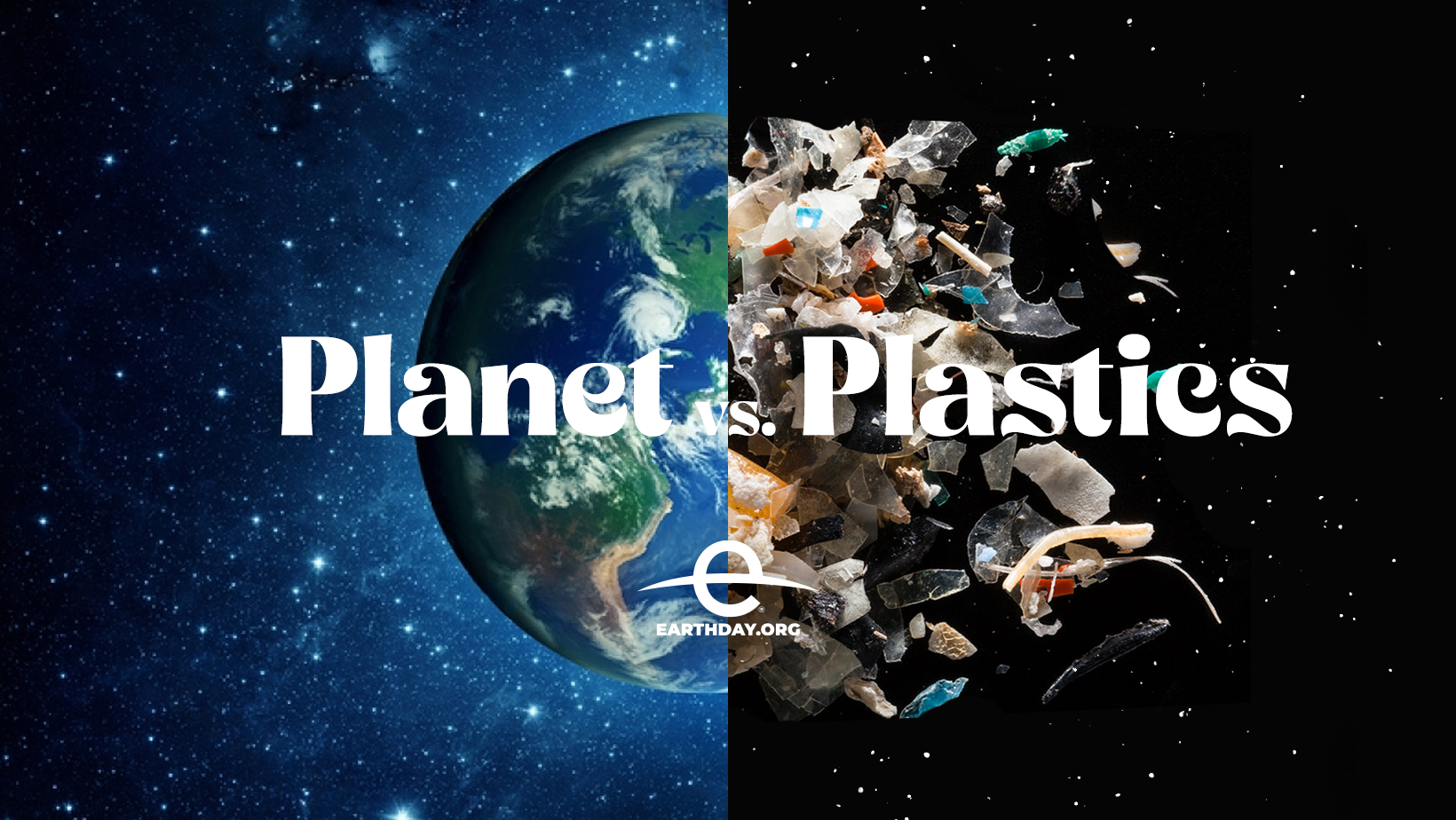
Plastic waste is one of the biggest threats we face to our environment. This year Earth Day is focusing on the theme of Planet vs Plastic.
Earth Day 2024 took place the past Monday the 22nd Of April, 54 years after the first ever Earth Day in 1970. This worldwide movement raised awareness of climate change, helping educate, spread information, and encourage everyone to get involved in the fight against climate change.
It is important that we recognise what we are doing to our earth and how we can help. What we often do not realise is that everything we do has an impact on the environment, from what food we eat to how we travel, to the water we choose to drink, we all are making our mark on our changing environment. The effects of climate change are damaging nature, the environment, and our health, so it helps to step back, and take time to understand why Earth is precious and what we can do to step up and protect it.
Movements like Earth Day are prime examples of awareness and education around our planet, how it works and what we can do to reduce our impact on its deterioration. You can read more about it in our article: Join The Movement: Earth Day 2024
Planet vs Plastic (60×40)
 This year Earth Day is focusing on the returning theme of Planet vs Plastic. The theme was set to commemorate the 5th anniversary of the Great Global Clean-Up and represents Earth Day’s commitment to end plastic waste and heal our planet. The theme aims to unite everyone across the world, no matter their background, to fight for the end of production and reduce the waste of plastic.
This year Earth Day is focusing on the returning theme of Planet vs Plastic. The theme was set to commemorate the 5th anniversary of the Great Global Clean-Up and represents Earth Day’s commitment to end plastic waste and heal our planet. The theme aims to unite everyone across the world, no matter their background, to fight for the end of production and reduce the waste of plastic.
The campaign is demanding a 60% reduction of production by the year 2040 and is encouraging the end of single-use plastic production by 2030, envisioning a future free from plastic pollution.
“The Planet vs. Plastics campaign is a call to arms, a demand that we act now to end the scourge of plastics and safeguard the health of every living being upon our planet.” – Kathleen Rogers, president of Earth Day.
A bit about plastic waste
Plastic waste is one of the biggest environmental problems we face across the globe. It refers to thrown-away plastic materials that pollute the environment, especially when not properly disposed of or recycled. It most commonly comes from things like packaging for food, drinks, and various other items, it also comes from plastic toys, shopping bags, bottles, and other plastic items that will eventually be thrown away.
One of the biggest plastic villains is single-use plastics. Single-use plastics are used every day, more commonly known as bottles and food packaging, even balloons. Did you know that up to 90% of the plastic that is used is not recycled or disposed of correctly? Without being recycled these plastics end up in landfill and can take hundreds of years to decompose.
But plastic items are not only a problem, there is also the huge production of waste coming from fast fashion. An estimated 85% of clothes are thrown into landfills or incinerators, and only 1% is being recycled.
Why is it important?
Campaigns like Planet vs Plastic are crucial to solving our plastic waste crisis. We are seeing build-up in our water systems and our landfills. As an example, our marine life and wildlife are in danger because of this build up. Plastic waste such as bags and packaging are found entangled on animals and are often being mistaken for food, causing injuries, starvation, and hurting our wildlife. This disrupts ecosystems and poses as a threat to different species.
The constant production of plastics is poisoning our planet from our waters and oceans, our beloved ecosystems, our air and even our health.
Due to plastic clogging up our water, we are seeing an increase in plastic pollution and microplastics within our food and water systems. It is estimated that there is an average of 10 plastic particles per litre of water, each larger than the width of a human hair.
Earth Day has supplied numerous fact sheets that share statistics about plastic waste. These stats are eye-opening to why the Planet vs Plastic movement is so important.
What can you do to help?
Buy organic or local if possible: Organic and local producers tend to use less plastic packaging as the produce does not need as much protection for transport or to keep it fresh.
Reuse or Recycle: When it comes to disposing of your items, consider your options, can you reuse that take-away container? Could you turn that bottle into a flowerpot? If not, look into your local recycling rules or take your item to a recycling centre.
Choose plastic-free alternatives: Replace your single-use plastic bottles with metal water bottles or flasks, switch from disposable nappies, wipes, and pads to reusable or biodegradable ones, wrap your food with beeswax wrap instead of plastic, and the best part is that it can work out significantly cheaper in the long run.
Sign the single-use plastics pledge: To do your bit for the environment you can sign up for our single-use plastics pledge, and pledge to reduce your single-use plastic usage.
Sign the Global Plastics Treaty: This is a call to action to support the end of unnecessary plastic production. Things like a ban on plastic-related tobacco products, a ban on the export of plastic waste and more.
Take part in a clean-up: Host or volunteer at a local clean-up. We have some scheduled clean-up events across County Durham on the Seascapes website. Or find events on the Earth Day events page.
This campaign is one step closer to tackling climate change. Earth Day is an exciting initiative that can encourage everyone to get involved and take steps (no matter how big or how small) to reduce their carbon emissions and protect our planet.

